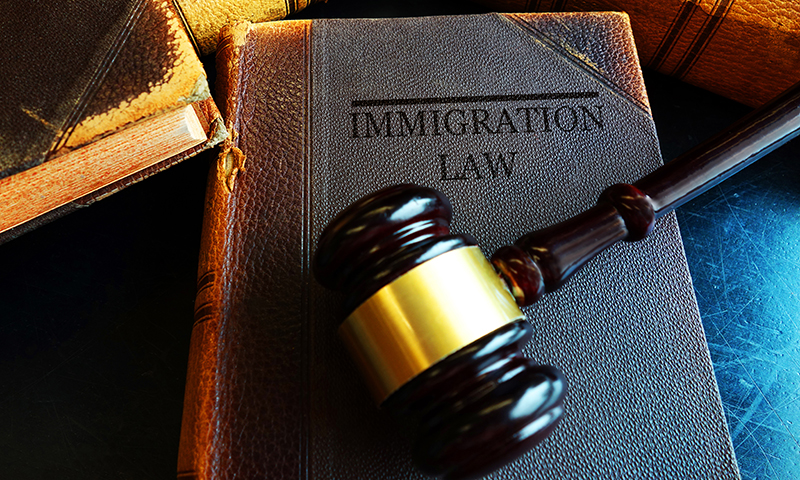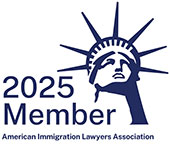If you’ve been wanting to help your sibling immigrate to the United States, then you’re likely familiar with the F4 visa. This type of family-preference immigrant visa is specifically designed to reunite brothers and sisters with their U.S. citizen siblings. By understanding how this process works, you can start bringing your loved ones closer together.
In this article, we’ll dive deep into what exactly an F4 visa is and how it operates within complex immigration laws. We’ll look at the application process step by step, discuss waiting periods and priority dates, highlight some limitations you should be aware of, and examine the impact that securing an F4 visa can have on families like yours.
What is the F4 Visa?
The F4 visa is designed to facilitate permanent family-based immigration for brothers and sisters of U.S. citizens.
To be eligible for the F4 visa, you must be a sibling of a U.S. citizen who’s at least 21 years old. Additionally, your American sibling must serve as the sponsor by filing Form I-130, Petition for Alien Relative, on your behalf.
F4 Visa benefits extend beyond simply allowing you entrance into the U.S.; they allow you to become a permanent resident of the United States with your family members. Once approved and issued, you can work legally within the country without needing an Employment Authorization Document (EAD).
Furthermore, after five years of continuous residency in the U.S., you become eligible to apply for U.S. citizenship through naturalization – another monumental milestone towards solidifying your place as part of the diverse fabric that makes up American society.
How to Apply for an F4 Visa
The first step in applying for an F4 visa involves gathering the necessary documents, like your birth certificates, marriage certificates (if applicable), proof of U.S. citizenship, and any other relevant information proving your relationship with your sibling.
This stage is crucial; any missing or incorrect documentation could delay the application process or even outright denial of the visa. Once you’ve gathered all documents and submitted them along with Form I-130, Petition for Alien Relative to USCIS (U.S Citizenship and Immigration Services), you’ll wait for approval notification.
While waiting, start preparing for the visa interview phase, a key part of the process. If approved, the petition will be forwarded, along with documents, to the National Visa Center (NVC). The NVC provides the foreign applicant with instructions and documents, guiding the next steps.
After waiting for the date to become current, applicants complete Form DS-260, undergo medical examinations and vaccinations, gather required documents, attend a U.S. embassy/consulate interview, and upon approval, receive an immigrant visa in their passport, which allows them to travel to the United States. The comprehensive process ensures adherence to family-based immigrant visa regulations.
Legal Considerations and Challenges of the F4 Visa
Bringing your brother or sister stateside may seem straightforward, but it’s riddled with legal complexities and challenges that can leave you feeling overwhelmed. Understanding the eligibility criteria for an F4 visa is just the beginning.
The sheer volume of documentation required can be daunting. Each form must be filled out accurately; even minor errors could lead to delays or denial. You might also have to deal with bureaucratic roadblocks that considerably slow the process.
Legal complications like prior removals, criminal records, or immigration fraud allegations against your sibling can make obtaining an F4 visa almost impossible without professional legal help. These hurdles could affect your emotional well-being as you strive to reunite with your family.
It’s crucial to arm yourself with accurate information and possibly engage an expert in immigration law to guide you through this challenging journey.
Here are a few things to consider:
- The F4 visa category has a cap of 65,000 visas issued per year, meaning there’s a limited number of immigrant visa applications that the government will accept and process. This means that the F4 visa process is not a quick one..
- Your sibling could face a visa denial if they fall under any grounds of inadmissibility as defined by U.S. law. These include but aren’t restricted to, criminal history, previous immigration violations, or even health-related issues of the applicant.
- You must demonstrate adequate financial means to support your siblings until they become self-reliant upon arrival in the United States. You must submit an Affidavit of Support (Form I-864) showing your income is at least 125% above the Federal Poverty Guidelines for your household size.
Failure to meet these requirements can lead to visa denials or delays in processing times. Thus, it’s vital that you fully understand these limitations before initiating the F4 visa application process for your sibling, and strongly consider working with qualified immigration lawyers to walk you through the process.
Secure Your F4 Visa: Contact Our Immigration Lawyers Today
Unlock the door to family reunification with the F4 Visa, and let our experienced immigration attorneys be your guide. If you’re longing to unite with your siblings and create a stronger bond on U.S. soil, our team at the Law Office of Lina Baroudi in San Jose will streamline the process for you.
With a deep understanding of the process, we’re committed to assisting you at every step – from gathering and preparing the necessary documents to navigating the legal procedures with precision.
Our team is dedicated to helping you achieve your goal of family togetherness, so contact us today to schedule a consultation. Let’s work together to build a brighter future for you and your loved ones.





















